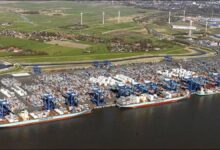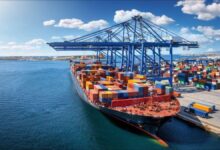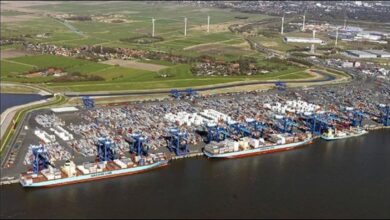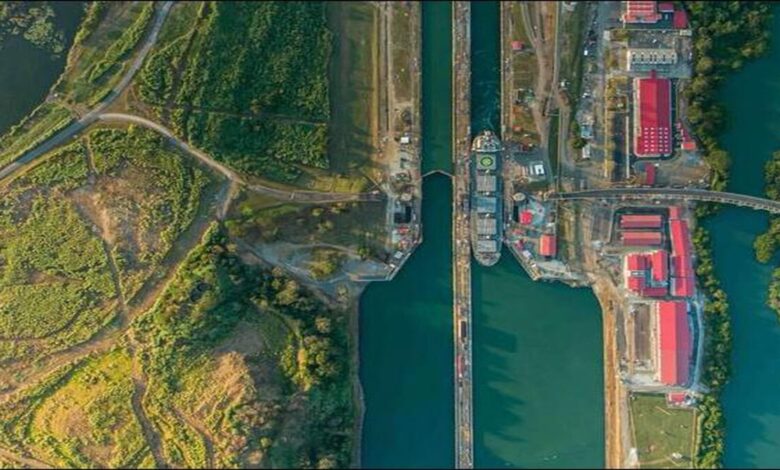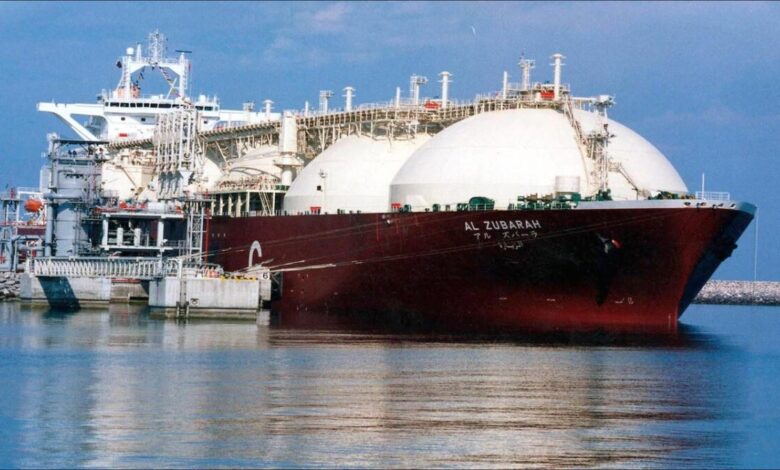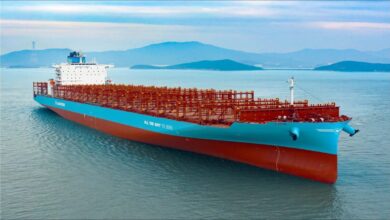Containers
February 15, 2026
Maersk, Eurogate Plan €1B Bremerhaven Terminal Expansion | Mariner News
Shipping giants Maersk, through its APM Terminals division, and Eurogate are planning a substantial €1…
Containers
February 15, 2026
Maersk, Eurogate Plan €1B Bremerhaven Terminal Expansion | Mariner News
Shipping giants Maersk, through its APM Terminals division, and Eurogate are planning a substantial €1…
Bulkers
February 15, 2026
Panama Canal & USGBC Boost Global Grain Trade | Mariner News
The Panama Canal and the U.S. Grains & BioProducts Council (USGBC) recently formalized a crucial…
Bulkers
February 15, 2026
Panama Canal & USGBC Boost Global Grain Trade | Mariner News
The Panama Canal and the U.S. Grains & BioProducts Council (USGBC) recently formalized a crucial…
Business
February 15, 2026
David Dearsley: Maritime Relations Pioneer Remembered | Mariner News
The maritime world mourns the passing of David Dearsley, a true titan whose influence on…
Containers
February 15, 2026
HMM Forecasts Vessel Oversupply to Hit Shipping Market | Mariner News
Korea’s flagship container line, HMM, is sounding the alarm over an anticipated vessel oversupply that…
Containers
February 15, 2026
Synergy Marine to Operate Yang Ming Newbuilds | Mariner News
Synergy Marine Group, a leading global ship manager, has secured a significant agreement to operate…
Bulkers
February 15, 2026
2020 Bulkers Sells Vessels, Seeks New Growth | Mariner News
2020 Bulkers, a prominent player in the dry bulk shipping sector, has announced a significant…
Tankers
February 14, 2026
Odfjell Adds 10 New Chemical Tankers to Fleet by 2026 | Mariner News
Odfjell, a leading player in the maritime industry, is set to significantly enhance its operational…
Tankers
February 14, 2026
Odfjell Adds 10 New Chemical Tankers to Fleet by 2026 | Mariner News
Odfjell, a leading player in the maritime industry, is set to significantly enhance its operational…

